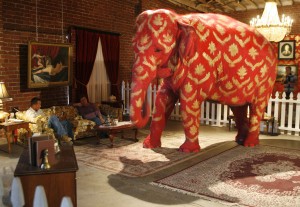 Rosh Hashanah is a time of reflection on beginnings, on the birth story of humanity and on our own births. I was born in the winter of 1958 in Atlantic City. My father had received his rabbinic ordination a year before and the small orthodox synagogue in this sleepy beach town offered him his first position. The synagogue was inland but we lived a block from the ocean. I fell asleep to the rhythmic sound of waves.
Rosh Hashanah is a time of reflection on beginnings, on the birth story of humanity and on our own births. I was born in the winter of 1958 in Atlantic City. My father had received his rabbinic ordination a year before and the small orthodox synagogue in this sleepy beach town offered him his first position. The synagogue was inland but we lived a block from the ocean. I fell asleep to the rhythmic sound of waves.
My first five years of life were spent along, under and on the boardwalk. I wandered often, either with my older sister Sarah, my buddy Stanley or by myself. By the time we left Atlantic City I knew every slat of the boardwalk from the Steeplechase Pier down to the Planter’s Peanut Man. My favorite store along the boardwalk had a display of stuffed jungle animals—how I wished that I could rescue one from behind the impenetrable glass enclosure.
I have snippets of memories, many very clear. Ladies in white gowns: The Miss America pageant held in the first week of September and always on Saturday. Woken in the middle of the night: The hurricane of ‘62 which destroyed the Steeplechase Pier. Heading to see the whale washed up on the beach: The car turned around once the announcer on the radio (finally) said, “April’s Fools.” The strongest man on the beach: The Orthodox Rabbi in town, my father. Television: Something we would watch by sneaking into motel rooms across the street.
We all have beginnings; we all have memories of those beginnings. Rosh Hashanah is a time to reflect on our early and formative beginnings. How did those experiences shape us? How do they continue to shape us?
There are many influences on the life we live. Psychology has taught us: the earlier the influence the deeper the code. That code is translated into a way of seeing the world and us in relation to it. What did the hurricane encode in me as I surveyed the flood in our basement and saw the remnants of the Steeplechase Pier that had not been washed away to sea? What was encoded in me on that April 1st when I realized that my parents, the smartest people I knew could be so easily fooled by a prank? Each of our experiences is a little message encoded into us.
William White suggests that the “kind of organization one gives to memories” is what underlies individual character. “One’s memory must put its beads upon scores of different strings,” writes White in his book, Masks in a Pageant, “the work-string and the love- strand run through every life.”
It is intriguing to consider the memory filing system and whether they are neatly labeled in separately stored folders with names such as Atlantic City-The Early Years. It is even more intriguing to wonder: What or who is doing the filing? Neuroscientists have been mapping how and where memories are formed and stored but to my knowledge some aspects, such as “the who” of the memory system—who is deciding where to place memories–is still a mystery. What links are there, if any, between files and folders and is there a folder with plenty of subfolders and files that is labeled: Events and Incidents Not to Be Remembered?”
There are many world events from this past year I would like to not remember (and some personal ones too)—that’s one of the problems though with “not remembering” as Immanuel Kant joked: “I have to remember to forget that!”
Whoever that who is who is filing my memories has a clever name for that particular folder of those memories I want to choose to remember to forget. It is labeled: The Elephant in the Room.









0 Comments